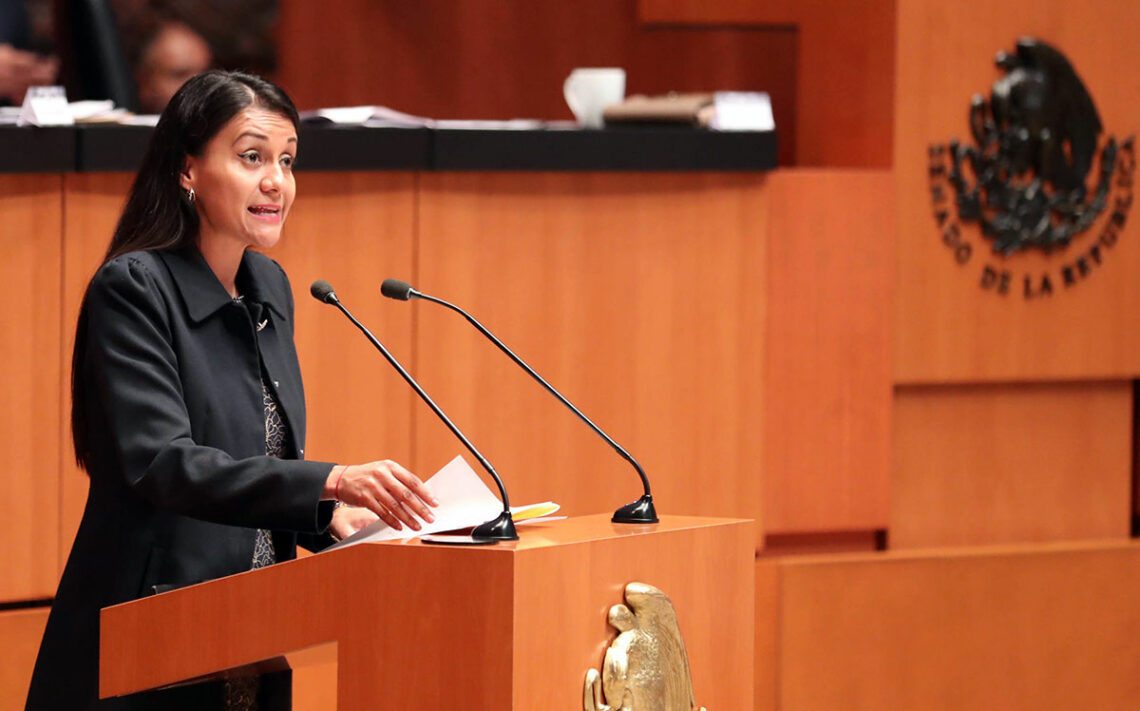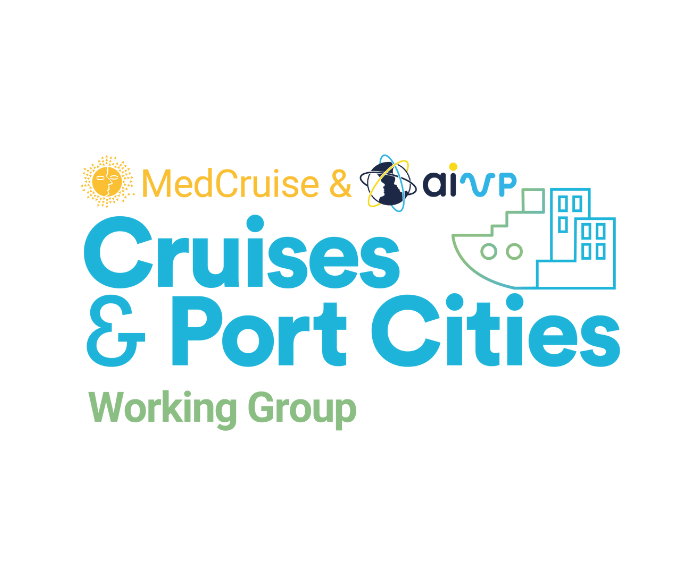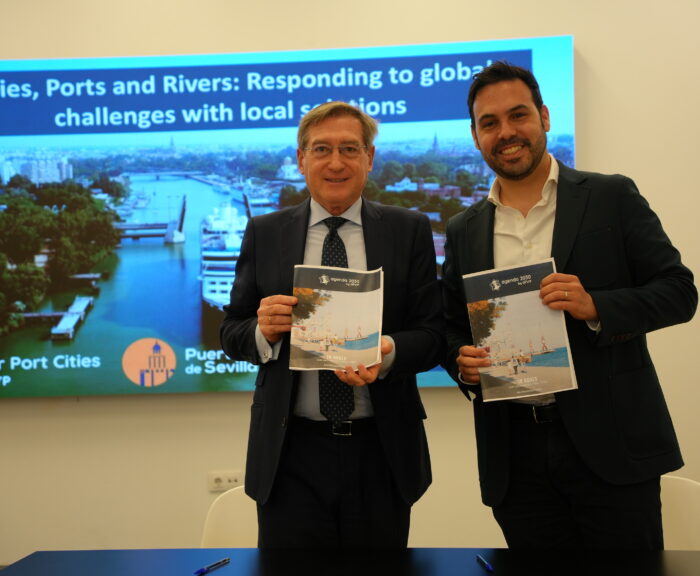 The legal definition of the port-city relationship, and the responsibility of each one of the main actors is one of the key issues in port city governance. In AIVP, we have seen an increasing discussion about this issue. Recently, there have been new initiatives and debates in Chile and Spain. The most recent development has taken place in Mexico, where last April, the senate unanimously approved the law reform, increasing the implication of port authorities in urban development. These organizations will contribute with 30% of the surplus annual income. Considering how important this debate is, AIVP invited senator Gabriela Benavides, main sponsor of the law, to write an article explaining this initiative and help us understand how it functions, and the possible consequences.
The legal definition of the port-city relationship, and the responsibility of each one of the main actors is one of the key issues in port city governance. In AIVP, we have seen an increasing discussion about this issue. Recently, there have been new initiatives and debates in Chile and Spain. The most recent development has taken place in Mexico, where last April, the senate unanimously approved the law reform, increasing the implication of port authorities in urban development. These organizations will contribute with 30% of the surplus annual income. Considering how important this debate is, AIVP invited senator Gabriela Benavides, main sponsor of the law, to write an article explaining this initiative and help us understand how it functions, and the possible consequences.
Much has been talked about the importance of the port-city relationship, but sadly it is not even enshrined in the Ports Law (Law) or the Ports Law Regulations (Regulations).
When I had the opportunity to serve as President of the City Council of Manzanillo, in the 2015-2018 administration, I was a director of the Integrated Port Board (API) of Manzanillo.
Cities like Manzanillo, which have to coexist with port activity, are benefited by the jobs and economic activity created for the region but are severely affected in terms of: I) traffic and mobility logistics, II) deterioration in the urban infrastructure and public services, and III) the damage done to the region’s natural and tourism resources (among other aspects).
However, according to the Law and the Regulation, APIs are not allowed to carry out actions and/or works that may minimise or compensate harm caused to the cities where they are located (when these actions or works occur outside the port precincts).
This is worrying, because in fact we see ports which compete internationally and are among the best in region – and indeed the world – but at the same time we see that the glory of the cities where they are located is ravaged.
And furthermore, all the money generated by the ports is concentrated in the Federation, while little – or sometimes nothing – returns to the city; in other words, the cities have to deal with the consequences of port activity and the damage it causes, but do not receive any direct benefits from the port.
This undoubtedly translates into a poorer quality of life for us as citizens of these port cities; we are the first to be affected by the lack of social justice because there is no clear, comprehensive definition of the port-city relationship in our legal and economic system.
In Mexico[1] we have 117 functioning ports and terminals, but only 16 of them fulfil the conditions and requirements necessary to have a federal API (Altamira, Coatzacoalcos, Dos Bocas, Ensenada, Guaymas, Lázaro Cárdenas, Manzanillo, Mazatlán, Progreso, Puerto Madero, Puerto Vallarta, Salina Cruz, Tampico, Topolobampo, Tuxpan and Veracruz).
I am convinced of the need for legislation to recognise the port-city relationship, to obtain the social justice demanded so insistently by the inhabitants of the cities where ports are located.
On 4 October 2018 therefore, with the support of my parliamentary party (Green Ecological Party of Mexico) and the Senator for MORENA, Griselda Valencia de la Mora, I presented a proposal for a bill to reform articles 3, 8, 23 Bis, 33, 37, 40, 41, 42 and 64 of the Ports Law dealing with the port-city relationship.[2]
The reform has 4 main thrusts:
Firstly to enshrine the port-city relationship as a legal concept and expressly recognise that this relationship must be a priority for both federal authorities and APIs.
Secondly, that the Welfare Department and the Communications and Transport Department (SCT) must seek at all times to promote harmonious development between ports and cities, supervising that investment in infrastructure works will generate a direct benefit for the community, caring for the urban surroundings, access roads and the environment.
Thirdly, establishing inter-institutional and inter-governmental guidelines for coordination and cooperation, to forge close links between the port organization and harmonious joint development of port and city.
And fourthly, to determine that 30% of the excess earnings generated by APIs should be handed directly to the local state governments for use on the urban infrastructure, public services and/or actions to mitigate or compensate the environmental damage caused by port activity.
The latter will undoubtedly be the most significant measure, which will produce results in the short and medium term; because we can enshrine all the necessary concepts for the port-city relationship in the Law and the Regulations, but as long as no clear, specific cooperative actions exist involving the two entities, we will probably not see any tangible results.
What do we mean by excess earnings? Well, the APIs’ annual revenue is calculated according to the Revenue Law and automatically included in the Expenditure Budget.
But due to the constant growth of the ports’ activities, some APIs receive greater annual revenues than accounted for in the Revenue Law, and this difference is described as “excess earnings”.
It is from these excess earnings that we propose that 30% of the total should be transferred to port cities affected by port activity; I must stress that these revenues are not included in the federal government’s annual expenditure, so no social programme, public policy or budget sector set under the Federation’s Expenditure Budget for the year will be affected.
On 6 December 2018, this bill received a positive evaluation by the United Committees of the Marine Department and the Second Legislative Studies Committee of the National Senate to which it was referred.[3]
On 4 April this year it was approved in Plenary Session of the upper chamber with a total of 103 votes in favour, and was referred to the Chamber of Deputies to pass through the proper legislative process.
It has presently been referred to the Communications and Transport Committe of the Chamber of Deputies; we hope that it will receive positive evaluation in the decision issued by the Committee and that our Federal Deputies can support it and pass it into law.
We still have a long way to go, but this will certainly be a great first step to create the sort of port-city relationship we have aspired to for so long.
[1] Department of Communications and Transport. National Ports System. Consulted on line (May 2019). Web page http://www.sct.gob.mx/puertos-y-marina/puertos-de-mexico/
[2] The proposed bill can be seen in the official web page of the Senate of Mexico at http://www.senado.gob.mx/64/gaceta_del_senado/documento/84016
[3] The decision of the United Committees of the Marine Department and the Second Legislative Studies Committee of the National Senate on the bill to reform various articles of the Ports Law can be seen in the official web page of the Senate of Mexico at http://www.senado.gob.mx/64/gaceta_del_senado/documento/91735





